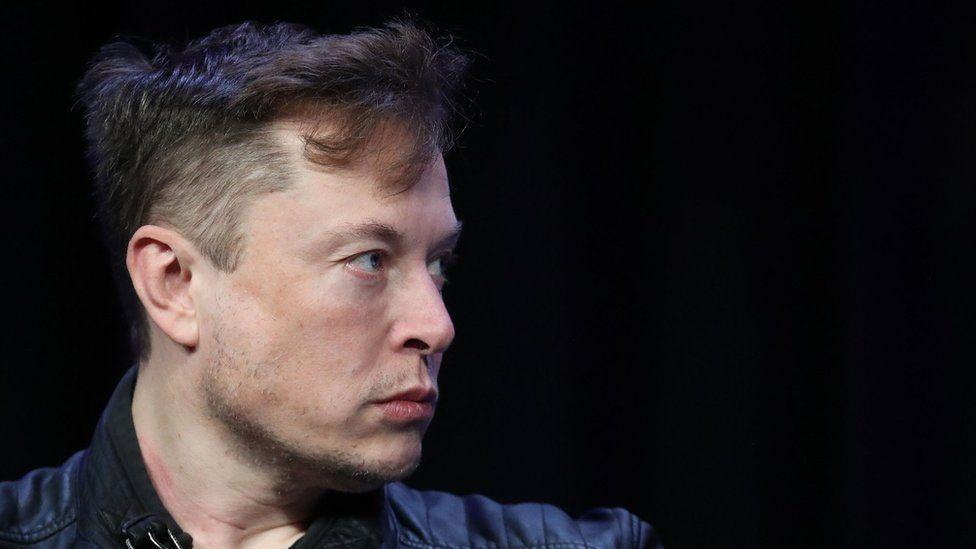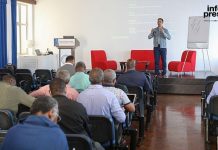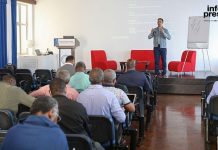Africa-Press – Cape verde. Elon Musk is set to take over Twitter, the small but mighty social media platform used by politicians, journalists and neighbourhood trolls alike to spread news, hot takes, and sometimes misinformation.
As he prepares to put his stamp on the company, let’s review what we know about the billionaire. Since bursting on the Silicon Valley scene more than two decades ago, the 50-year-old serial entrepreneur has kept the public captivated with his business antics.
Born in South Africa, Mr Musk showed his talents for entrepreneurship early, going door to door with his brother selling homemade chocolate Easter eggs and developing his first computer game at the age of 12.
He has described his childhood as difficult, coloured by his parents’ divorce, bullying at school and his own difficulty reading social cues due to Asperger’s Syndrome.
He soon fled home for college, moving to Canada and then the US, where he studied economics and physics at the University of Pennsylvania, an Ivy League college.
In a 2010 essay for Marie Claire, his first wife Justine Musk, a writer who met Mr Musk in college and married him in 2000, wrote that even before his millions, Mr Musk was “not a man who takes no for an answer”.
“The will to compete and dominate that made him so successful in business did not magically shut off when he came home,” she recalled, adding that he told her while dancing at their wedding, “I am the alpha in this relationship.”
After being accepted to a physics graduate degree programme at Stanford University, Mr Musk quickly dropped out and founded two technology start-up companies during the “dot com boom” of the 1990s. These included a web software firm and an online banking company that eventually became PayPal, which sold to eBay in 2002 for $1.5bn.
He ploughed his fortune into a new rocket company, SpaceX, which he aimed to make a cost-effective alternative to Nasa, and a new electric car company, Tesla, where he chaired the board until becoming chief executive in 2008.
The two firms are credited with upending their industries, even as they sometimes veered close to collapse. “I’m never hugely convinced that he knows what he wants to do tomorrow,” says journalist Chris Stokel-Walker. “He very much leads by instinct.”
In a 2015 biography, author Ashlee Vance described Mr Musk as “a confrontational know-it-all” with an “abundant ego”. But he also called him an awkward dancer and diffident public speaker. Divorced three times – twice to the same woman – Mr Musk is frank about his vices, regularly discussing his fondness for marijuana.
In the press, he’s been dubbed both a mad genius and Twitter’s biggest troll, known as much for his lofty ambitions as his petty fights – not to mention the more serious lawsuits he and his companies have faced from regulators, investors and others over issues like racial discrimination and the trustworthiness of his claims.
“If you list my sins, I sound like the worst person on Earth,” Mr Musk said in a recent TED interview. “But if you put those against the things I’ve done right, it makes much more sense.”
All the messiness appears to be part of his appeal – and it certainly hasn’t stopped him from amassing a fortune. Forbes and Bloomberg now rank him as the world’s richest person, with a net worth of about $250bn – tens of millions more than his nearest rival, Amazon founder Jeff Bezos.
That’s based largely on the value of his shares in Tesla, of which he owns about 17%. The company’s stock has exploded in value – some say unreasonably – since the start of 2020, rising by a factor of 10 as the firm’s output increased and it started to deliver regular profits.
Mr Musk also champions digital currencies and has a hand in several other smaller companies, including tunnel-maker the Boring Company and experimental brain-computer start-up Neuralink.
Mr Musk, who wears the mantle of workaholic proudly, has often said he’s not in business simply to make money – claims he repeated recently about Twitter.
“Elon only gets involved with things if he feels that they’re critically important for some reason… for the sake of society or humanity,” says friend and Tesla investor Ross Gerber.
Mr Musk, who became a US citizen in 2002, has resisted efforts to label his politics – calling himself “half Democrat half Republican”, “politically moderate” and “independent”. That doesn’t mean he’s shied away from political fights.
He moved to Texas, complaining of California’s regulations and high taxes; has clashed with union organisers; and in the spring of 2020 decried coronavirus lockdowns as “fascist”.
He was one of the first business executives to part ways with former President Donald Trump, quitting a White House business council after Mr Trump withdrew the US from a global climate agreement. But he’s also made it clear he’s not a fan of President Joe Biden, who he sees as snubbing Tesla while promoting electric vehicles.
His direct political donations are relatively small for a man of his wealth – just $100,000 since 2004, according to Politico, fairly evenly split between the parties, at least in the early years. He gave to former President Barack Obama in 2011 and Democratic candidate Hillary Clinton in 2015, though more recently has focused on Republicans.
The American Civil Liberties Union, a US non-profit organisation known for its championship of values such as free speech, has recognised him as a top supporter. However, reports suggest most of Mr Musk’s donations have gone to charitable foundations he has set up himself that are charged with, eventually, disbursing the funds.
He said recently that he sees his businesses as a form of philanthropy, because they are focused on solving major human issues like climate change, in the case of Tesla.
Last fall, when the head of the United Nations World Food Programme called on billionaires to make one-time donations to solve the world’s food crisis, Mr Musk responded with scepticism to the challenge.
What that will all mean for Twitter – a platform already facing criticism from the left and right over its content moderation policies – is anyone’s guess.
“The easiest part for Musk was buying Twitter,” says Wedbush Securities analyst Dan Ives. “The hard part is going to be fixing it.”
For More News And Analysis About Cape verde Follow Africa-Press






